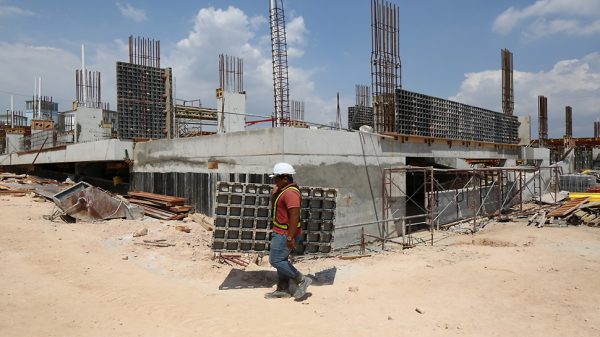FT ministry receives applications to build 29,000 affordable homes
The Federal Territories Ministry has received applications to build 29,000 affordable housing units, as of this year, said minister Khalid Abdul Samad. He said it involved about 40 projects under ‘Residensi Wilayah’ (formerly known as Rumawip) in Kuala Lumpur, Putrajaya and Labuan. “Last year, we had approved about 6,000 units of affordable houses for the DO (development order) under the Residensi Wilayah project and we are expected to achieve the construction target of one million units within 10 years,” he said. As of March 2019, the construction of 55,970 units of affordable houses involving 89 projects had been approved. (Malay Mail)
DBKL to buy land, save forest reserve
Kuala Lumpur City Hall (DBKL) will buy a piece of land in the heart of Kuala Lumpur’s Bukit Nanas Forest Reserve to preserve the city’s biggest tropical forest. Federal Territories Minister Khalid Abdul Samad said the 0.27ha land belonged to a private owner who applied to develop it. “We rejected the application (for development order) so that we can preserve the forest reserve,” Khalid said. “But since we turned down (the landowner’s) right to develop the land, we will buy it from him. We are currently in negotiations with the landowner. It is going to cost us a substantial sum but it will be worth it,” added Khalid. Buying the land was part of DBKL’s bigger plan to spearhead Kuala Lumpur to become a low-carbon city by 2030. It is estimated to cost DBKL within RM100mil to acquire the land at market value. It will be left as a green area in the city. (The Star Online)
Include vacant property in market analyses
Malaysia’s residential property overhang is estimated to be around 43,219 units worth RM29.47 billion in 3Q18. However, the numbers only cover the developer’s stock and do not cover vacant units already sold to individuals or companies. The real ratio that represents the demand and supply situation should be residential vacancy rates (RVR), which is the percentage of all units in a particular market that are unoccupied. It is timely for the National Property Information Centre (Napic) to provide the information on RVR instead of just overhang numbers. Napic should provide RVR on national, state, city or location basis just like other developed countries such as the US, Singapore and Australia. It will help developers, banks, property consultants, homebuyers and investors to make better decisions by understanding the current demand and supply situation. An RVR above 7% is considered high, and it is alarming for the market to add on supply. (Free Malaysia Today)
Protasco jointly undertakes RM371.5m mixed development in Tampin with sister company
Protasco Bhd is undertaking a joint mixed residential development project in Tampin, Negeri Sembilan, which has an estimated GDV of RM371.59 million, with Penmaland Sdn Bhd. The collaboration is considered a related party transaction as they share the same major shareholder, Datuk Seri Chong Ket Pen, the executive vice chairman-cum-managing director of Protasco. The conditional joint development agreement was signed between Protasco’s wholly-owned unit De Centrum Retail Sdn Bhd and Penmaland, which is the registered owner of the land measuring some 55.48 ha. The land is approved to be developed as a mixed residential development known as “Denai Hills”, comprising 703 units of terraced houses, 32 units of semi-detached houses, 71 units of bungalows, three homestay units and a commercial lot. (The Edge)
Putrajaya tightens checks on expat retirement programme
Putrajaya has introduced stricter background checks for Malaysia My Second Home (MM2H) applications, a popular programme that allows wealthy expatriates to stay in the country on a 10 year visa. The stricter process came about after approvals for the MM2H programme were placed under the Home Ministry. The Tourism Ministry handles other parts of the programme. A letter of good conduct (for the applicant) has been a requirement since 2002 and it acts as the first line of defence. According to sources, the process is stricter now due to heightened security threats such as terrorism and (criminal) syndicates. There are also worries over money laundering, with foreign dirty cash parked in housing units. As a result, close to 4,000 people have had their applications stalled since September last year. It took just two months for approval before. More than 40,000 people from 131 countries have been approved for the programme since 2002. (Malay Mail)





